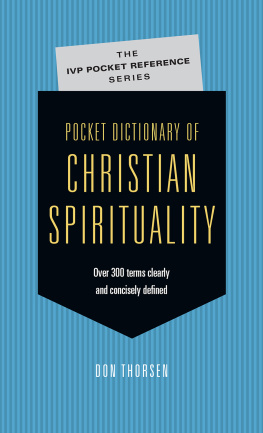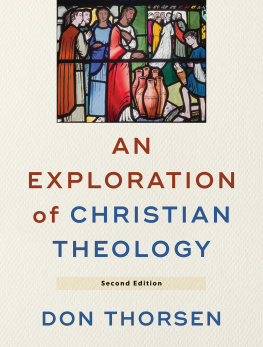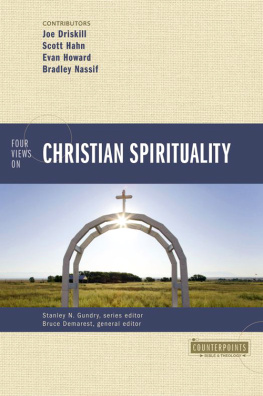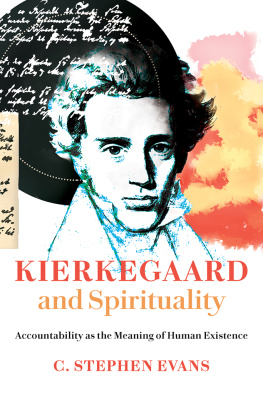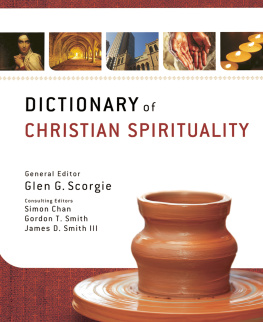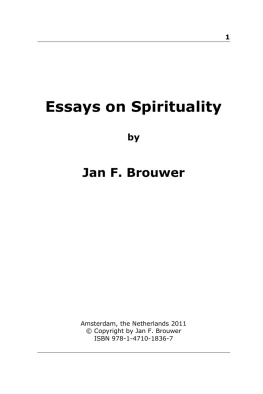Sommaire
Pagination de l'dition papier
Guide
DON THORSEN
InterVarsity Press
P.O. Box 1400, Downers Grove, IL 60515-1426
ivpress.com
2018 by Donald A. Thorsen
All rights reserved. No part of this book may be reproduced in any form without written permission from InterVarsity Press.
InterVarsity Pressis the book-publishing division of InterVarsity Christian Fellowship/USA, a movement of students and faculty active on campus at hundreds of universities, colleges, and schools of nursing in the United States of America, and a member movement of the International Fellowship of Evangelical Students. For information about local and regional activities, visit intervarsity.org.
Scripture quotations, unless otherwise noted, are from the New Revised Standard Version of the Bible, copyright 1989 by the Division of Christian Education of the National Council of the Churches of Christ in the USA. Used by permission. All rights reserved.
Design: Cindy Kiple
ISBN 978-0-8308-8732-3 (digital)
ISBN 978-0-8308-4967-3 (print)
This digital document has been produced by Nord Compo.
To my daughter
Dana Thorsen
who is an inspiration and
encouragement to me
as well as to others.
Preface
Spirituality has to do with the human spirit, and Christian spirituality has to do with our relationship with the divine Spiritwith God. In particular, Christian spirituality has to do with our relationship with God, who in Scripture is revealed as our heavenly Father, as Abbaa term of personal intimacyby Jesus Christ. Jesus atoned for peoples salvation from sin and judgment through his life, death, and resurrection. Through him people are saved and are reconciled to God by grace through faith. However, the story of salvation does not end with conversion and the hope of eternal life. Jesus promised that the Holy Spirit would continue to work in and through the lives of believersof Christiansin healing, restoring, and transforming them spiritually and holistically. Salvation is as much for this life as for life hereafter as Gods Spirit works sanctifying grace in the lives of believers. In Scripture as well as church history, many activities, exercises, and disciplines of spiritual import have been practiced. God graciously intends for them to serve as a means by which believers may grow in faith, hope, and love; in intimacy in their personal relationship with God; and in their obedient maturation into Christlikeness.
One should beware of having an exclusively spiritualistic understanding of Christian spirituality. On the contrary, Christian spirituality ought to be thought of as something that is holistic, embracing all aspects of life: spiritual and physical, supernatural and natural, individual and social, gift and task, justification and sanctification, love and justice, scriptural and traditional, rational and experiential, sacramental and symbolic, extemporaneous and disciplined, and so on. The study of Christian spirituality is not intended to limit but to expand on its holistic relevance to people here and now.
The Pocket Dictionary of Christian Spirituality is my contribution to the InterVarsity Press reference series of pocket dictionaries. Certainly these topics are just as important to Christians as the information found in the other pocket dictionaries. Because this book is a part of a reference series, it will be more descriptive than prescriptive with regard to defining spiritual formation and Christian living.
Because of the varieties of Christian spirituality, it is difficult to present evenhandedly all the beliefs, values, and practices of each church traditioneast and west; north and south; liturgical and evangelical; Catholic, Orthodox, and Protestant. Because of the genre of the Pocket Dictionary of Christian Spirituality, terms have been defined simply, but not simplistically. If you want to learn more about specific beliefs, values, and practices related to Christian spirituality, then investigate them further as a spiritual study for yourself.
Let me give one example of differences among Christians with regard to spirituality. It has to do with the degree to which Christian spirituality (including its growth and formation) is considered a divine gift, and the degree to which it is considered a human responsibility or task. For example, in 1 Corinthians 3:6, the apostle Paul says, I planted, Apollos watered, but God gave the growth. Christians believe that God alone provides the salvation and spiritual growth people experience. However, they disagree with regard to the degree to which people have the responsibility or task of abiding in Jesus Christ, cooperating with Gods Holy Spirit for their salvation and spiritual growth (see John 15:1-11). What does it mean for Paul to plant and for Apollos to water? What do these words of Scripture mean for us today for our role in salvation and for our spiritual growth?
In answering these questions, some Christians emphasize how God sovereignly decrees all matters related to salvation and spiritual growth. At most, people are thought to act compatibly with Gods grace, but in no way do they work for or merit their salvation and spiritual growth. Other Christians, while they agree that they cannot work for or merit their salvation and spiritual growth, emphasize that God self-limits divine power over people, and preveniently gives them grace to decideaccepting or rejectingGods salvation and aid for spiritual growth.
On the one hand, those who emphasize Gods sovereign decrees may understand the definitions in this Pocket Dictionary of Christian Spirituality as descriptions of the effectual outworkings of Gods plan for their lives. On the other hand, those who emphasize Gods prevenient grace may understand the definitions as imperatives for synergistically cooperating with the Holy Spirit for their spiritual formation.
Both views believe that some degree of divine gift and human task is at work for peoples salvation and for their spiritual growth, despite differences with regard to the extent of their respective roles for peoples spiritual well-being, discipleship, and formation. As you read the Pocket Dictionary of Christian Spirituality, some definitions may seem to place greater emphasis on the role of God in peoples salvation and spiritual growth. Others may seem to place greater emphasis on Gods expectation that people act responsiblyaided by divine gracein planting and watering for their salvific and spiritual well-being. All definitions affirm that it is God alone who gives the growth.
Acknowledgments
I want to thank Steve Wilkens for advising me to write the Pocket Dictionary of Christian Spirituality and for his ongoing friendship and collegiality. I also want to thank Dan Reid for his editorial expertise and for patiently working with me on the dictionary. Special thanks go to Jini Kilgore Cockroft and Rebecca Russo for reading and commenting on my final manuscript. Jared Bjur provided invaluable help as my research assistant, and I am especially grateful to him. Others who gave input to the Pocket Dictionary of Christian Spirituality include Kyle Fraser, Brian Eager, Jake Evers, Dan Lane, and Dan Tkach.
As always, I am thankful to my daughters Liesl and Dana Thorsen, and to Heidi and her husband Will Oxford, for their ongoing love and support of my writing habit, which for me is a spiritual discipline. In particular, I want to honor my daughter Dana, to whom this book is dedicated. Dana, blessings!

